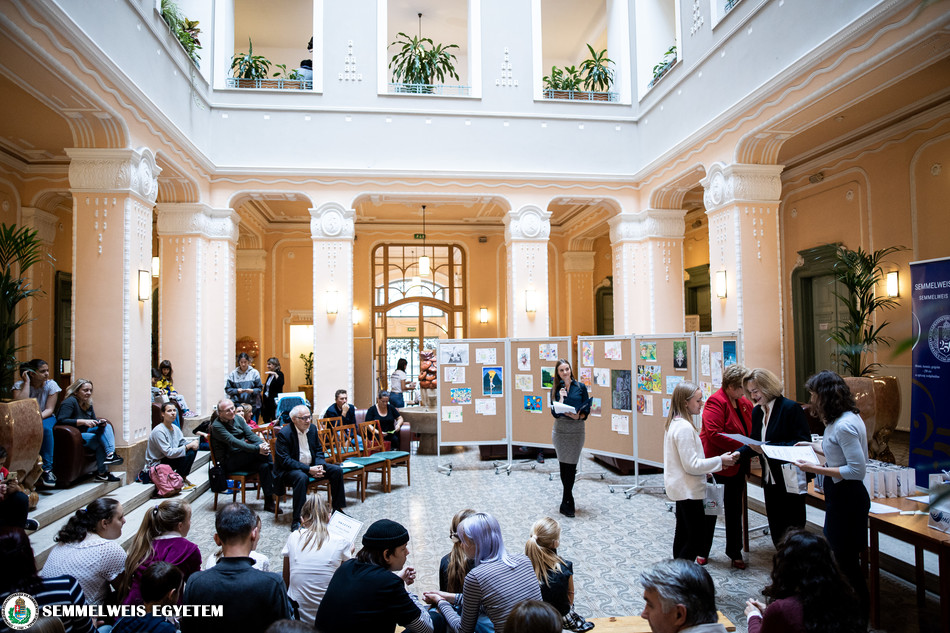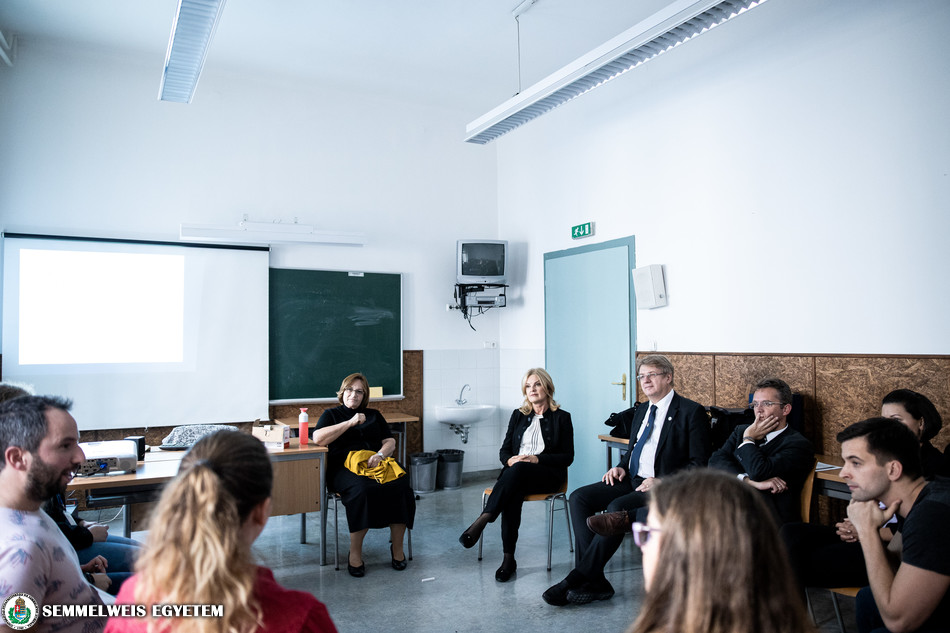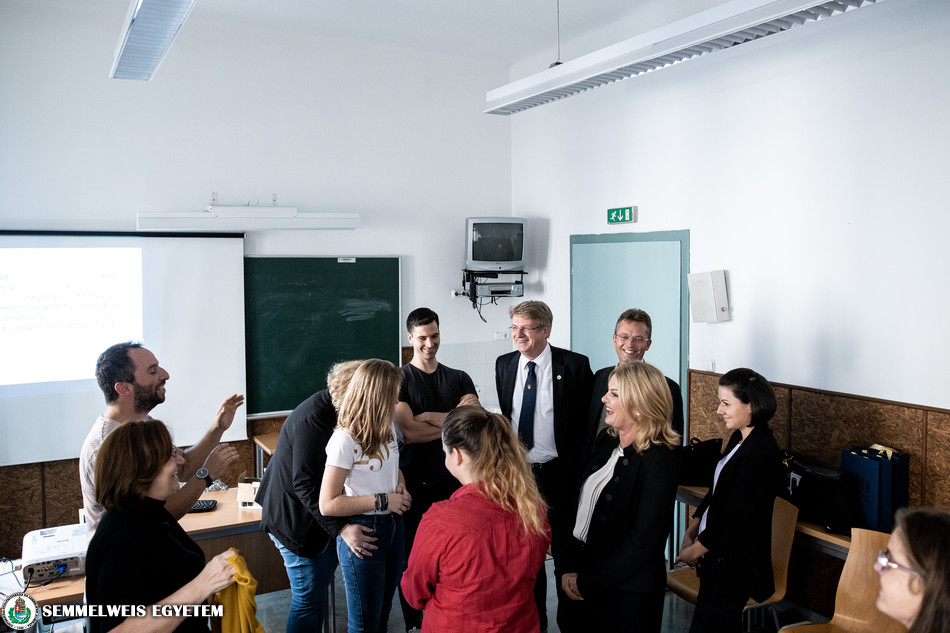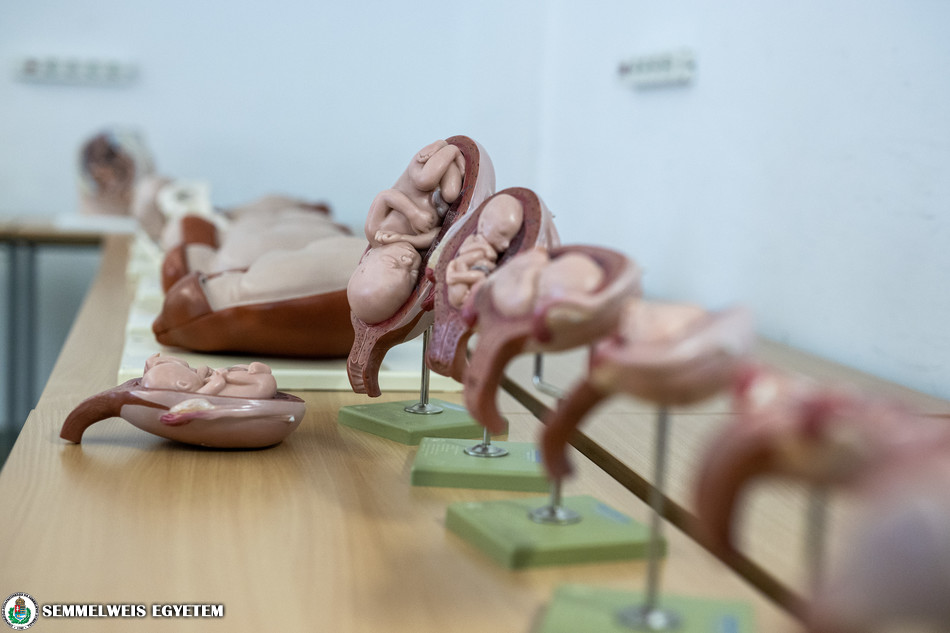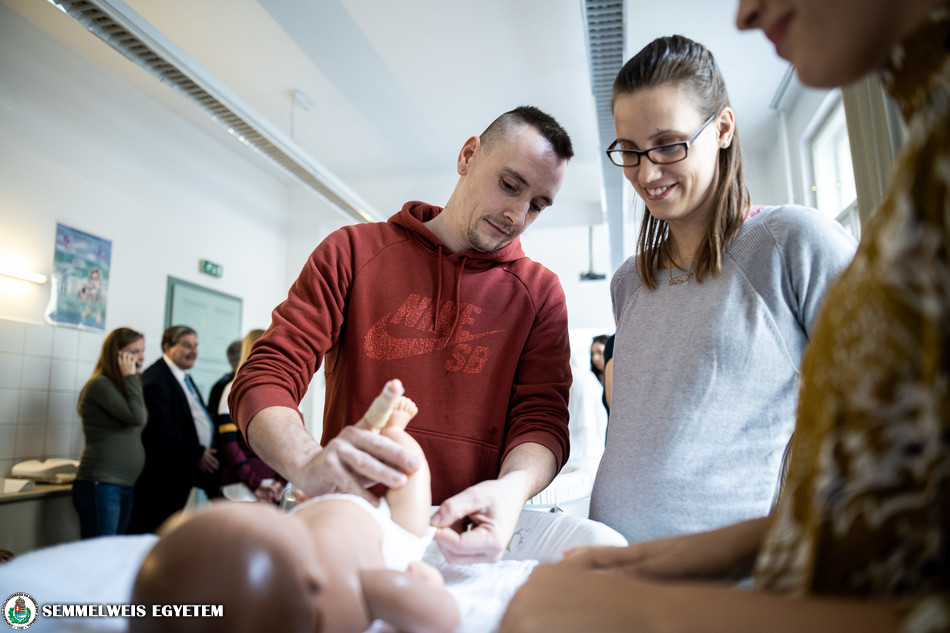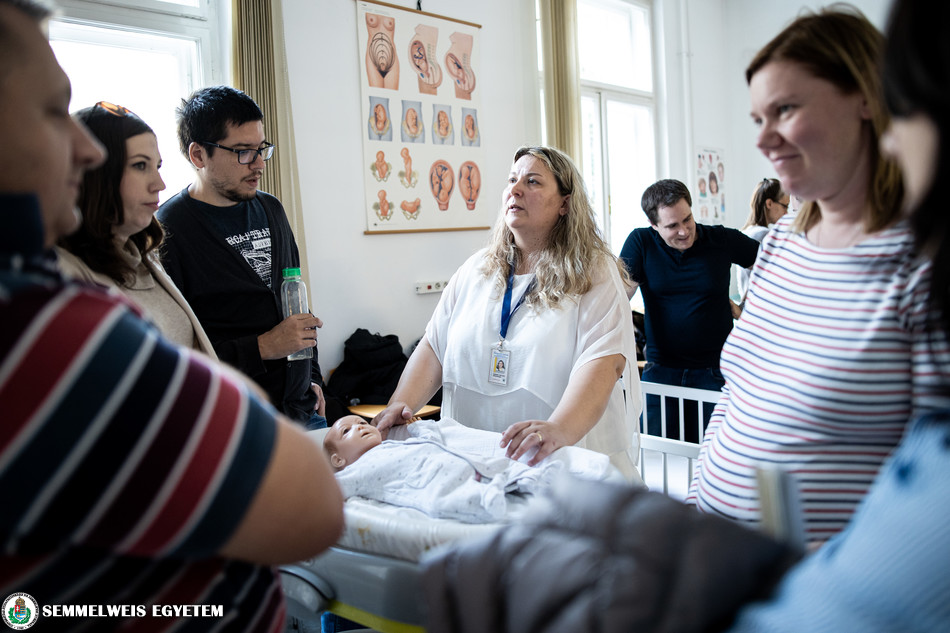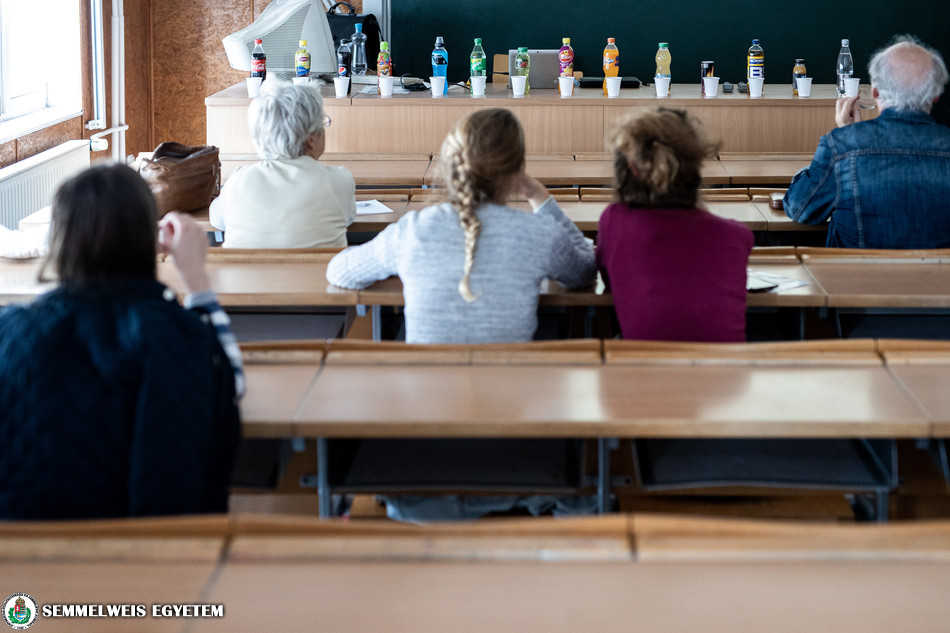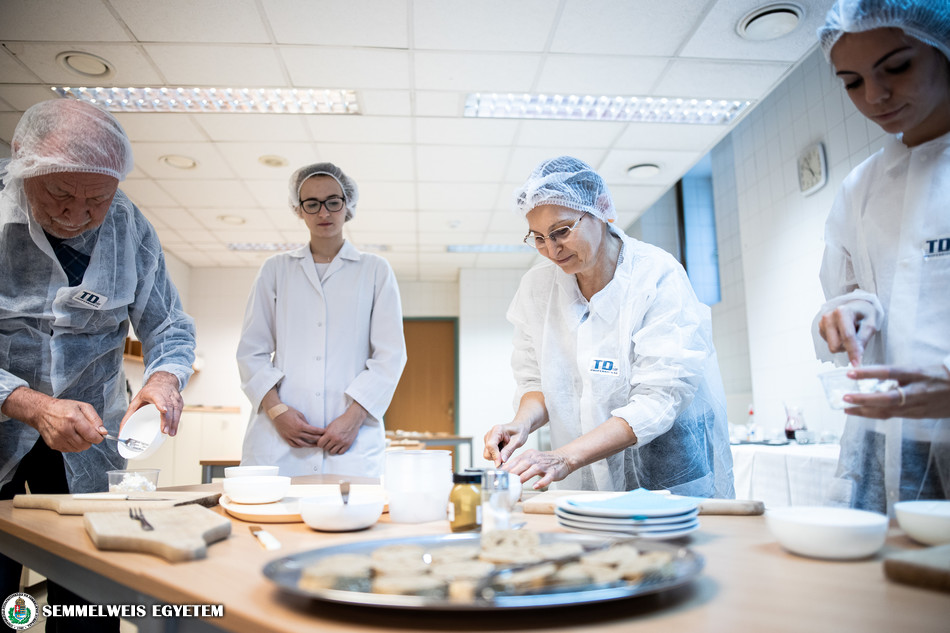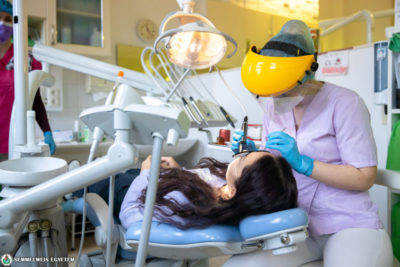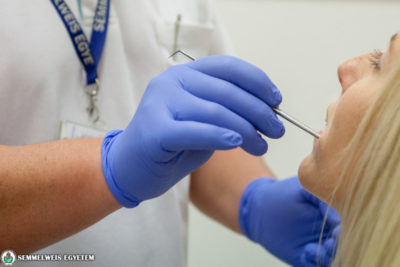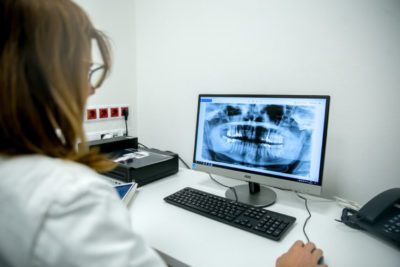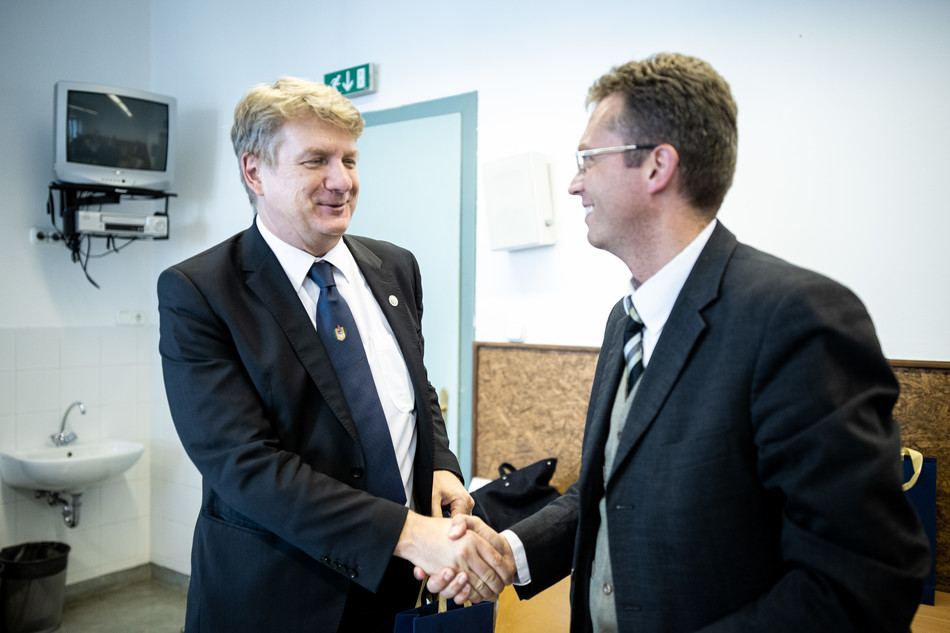 The second Semmelweis Health Day, a series of free, interactive events in the topics of public health organized by Semmelweis University, which is celebrating its 250th anniversary this year, was organized by the Faculty of Health Sciences and drew high interest from the public. Around 600 people took part in the event, called ‘Health Sciences in Daily Life,’ where they could choose from some 70 different presentations, practical exercises and screenings in everyday topics relating to health prevention. Close to 150 university staff and students participated in the organization of the event as presenters or volunteers. Members of the public were greeted by Dr. Balázs Hankó, vice-rector for strategy and development, and Dr. Zoltán Zsolt Nagy, the faculty’s dean.
The second Semmelweis Health Day, a series of free, interactive events in the topics of public health organized by Semmelweis University, which is celebrating its 250th anniversary this year, was organized by the Faculty of Health Sciences and drew high interest from the public. Around 600 people took part in the event, called ‘Health Sciences in Daily Life,’ where they could choose from some 70 different presentations, practical exercises and screenings in everyday topics relating to health prevention. Close to 150 university staff and students participated in the organization of the event as presenters or volunteers. Members of the public were greeted by Dr. Balázs Hankó, vice-rector for strategy and development, and Dr. Zoltán Zsolt Nagy, the faculty’s dean.
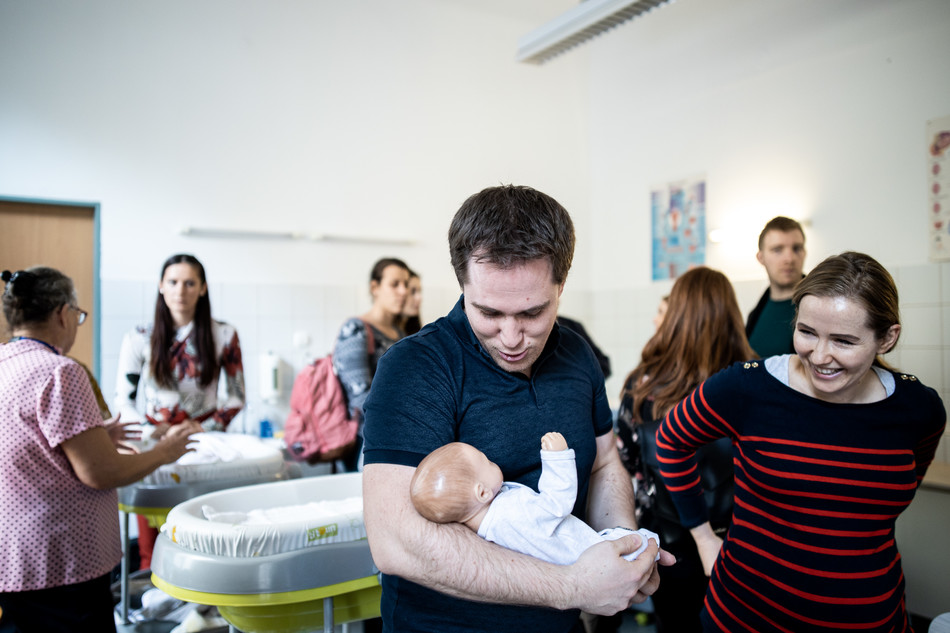 Several current topics were discussed at the event, including a healthy diet, preventing the vasoconstriction of the lower limbs, cardiovascular and locomotor system diseases and diabetes, and avoiding addiction. The practical solutions of stress management were also addressed, as was the correct use of contact lenses by children, how microorganisms spread, and the importance of washing the hands. Organizers placed great emphasis on family planning, thus couples and prospective parents received practical tips on taking care of the newborn, but separate presentations were held on ways of preventing child injuries, the correct way to take a child’s temperature, the chemicals contained in food, as well as the role of fathers, while older children could also take part in posture exercises. Visitors could learn about how to measure substances using a kitchen scale and how to see if gluten is present in a food, as well as trying out how to make healthy appetizers with the help of dietitians. There were also several interactive programs, where members of the public could try out an old-age simulator that is used in teaching at the university, and they could take part in a competition on how to give first aid. Visitors could meet therapy dogs, while emergency nursing students held a simulation exercise, where they demonstrated how injuries were treated and the situation was managed following the terrorist attack at the 2013 Boston Marathon.
Several current topics were discussed at the event, including a healthy diet, preventing the vasoconstriction of the lower limbs, cardiovascular and locomotor system diseases and diabetes, and avoiding addiction. The practical solutions of stress management were also addressed, as was the correct use of contact lenses by children, how microorganisms spread, and the importance of washing the hands. Organizers placed great emphasis on family planning, thus couples and prospective parents received practical tips on taking care of the newborn, but separate presentations were held on ways of preventing child injuries, the correct way to take a child’s temperature, the chemicals contained in food, as well as the role of fathers, while older children could also take part in posture exercises. Visitors could learn about how to measure substances using a kitchen scale and how to see if gluten is present in a food, as well as trying out how to make healthy appetizers with the help of dietitians. There were also several interactive programs, where members of the public could try out an old-age simulator that is used in teaching at the university, and they could take part in a competition on how to give first aid. Visitors could meet therapy dogs, while emergency nursing students held a simulation exercise, where they demonstrated how injuries were treated and the situation was managed following the terrorist attack at the 2013 Boston Marathon.
Dr. Zoltán Zsolt Nagy, the dean of the Faculty of Health Sciences, which organized the thematic event, said that preparations took six months, in which every department and institute of the faculty did their share, and every head lecturer held presentations at the program. There are 20 different training programs on the faculty, all aimed at health education, a healthy lifestyle and the prevention of diseases. “Our goal was to introduce our training programs to the public and bring them closer to the university, so we developed various types of health development programs for people of all ages,” the dean emphasized. He added that he believes in the importance of bringing education, research and the informing of the public closer to each other, so that by changing people’s lifestyle, Hungary can also reach the level of health awareness that is typical of more developed nations. “The saying goes that ‘if there is health, you have everything, but if there is no health, there is nothing’– it would be great if people remembered this not only when there is trouble, but if the prevention of diseases would start already in childhood,” he pointed out.
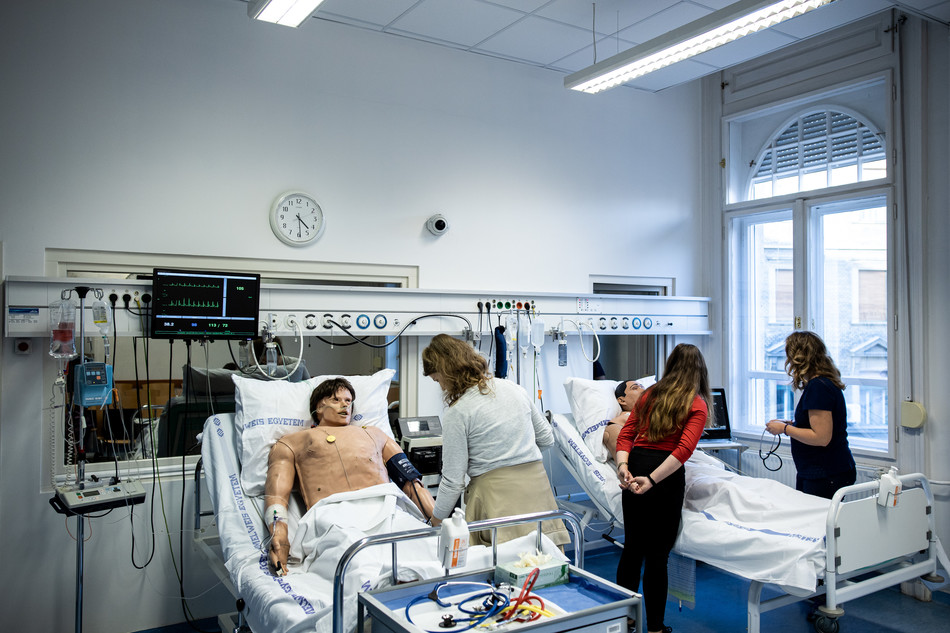 In addition to the dean’s office of the faculty, every separate faculty department, as well as the Semmelweis Health Development Center and the Students’ Union took part in the preparation and organization of the event, a total of around 150 university staff and students.
In addition to the dean’s office of the faculty, every separate faculty department, as well as the Semmelweis Health Development Center and the Students’ Union took part in the preparation and organization of the event, a total of around 150 university staff and students.
During the event, workers of the Semmelweis Health Development Center offered visitors an assessment of their health status and risks, as well as personalized advice. Around 50 people received complex screenings in the course of the afternoon. In three cases, the risk assessment showed a heightened risk of diabetes while one visitor had exceptionally high blood pressure. The cardiovascular risk assessment of the person found that there is a high probability they would die from some kind of cardiovascular disease within ten years, therefore the visitors was recommended an immediate change in lifestyle and advised to visit a doctor. Dean Dr. Zoltán Zsolt Nagy said workers likely saved this visitor of the Semmelweis Health Day from a stroke.
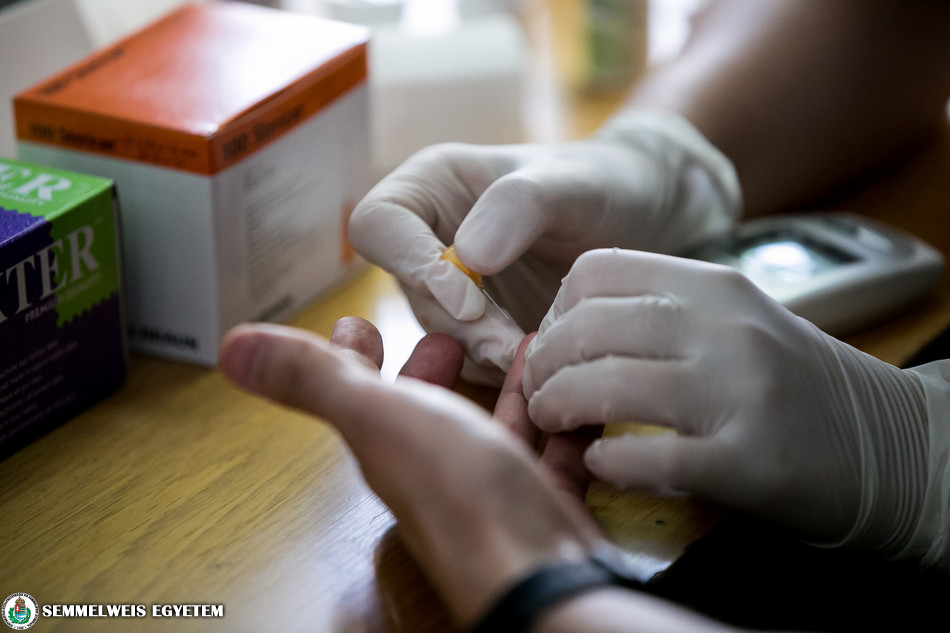 Thanks to the marketing activity of the Directorate of Communication and Event Management, more than 70 program teasers, online and print articles, and radio and television news reports appeared in the media relating to the October Semmelweis Health Day. The estimated combined value of these appearances was close to HUF 36 million.
Thanks to the marketing activity of the Directorate of Communication and Event Management, more than 70 program teasers, online and print articles, and radio and television news reports appeared in the media relating to the October Semmelweis Health Day. The estimated combined value of these appearances was close to HUF 36 million.
The next event in the series, called ‘First Aid in the Family,’ will take place on November 9. Registration for the event is set to start on October 14.
Krisztina Tőgyi
Translation: Tamás Deme
Photo: András Dimény – Semmelweis University
